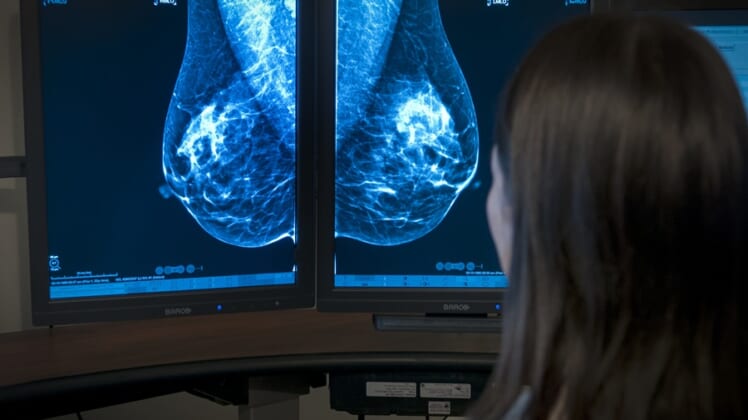Should Women with Breast Cancer Opt for Double Mastectomies?

This year alone, the American Cancer Society estimates that doctors will find over 300,000 new cases of breast cancer in the United States. When these doctors first diagnose breast cancer in women, the patients are often anxious about upcoming treatments and their future overall. This anxiety and lack of proper discussion about their situation may be leading many women to choose double mastectomies over other available options.
Double Mastectomies
One study published in JAMA Surgery is showing a sharp rise in breast cancer patients opting for double mastectomies, or removal of both breasts. Many of these women only have cancer in one breast. In some locations, as many as 42 percent of young women (between ages 20–44) are undergoing the surgery, and doctors are wondering why.
In fact, so many women are choosing double mastectomies that the number tripled between 2002 and 2012. Doctors fear that women are making this choice without thinking about the effects afterward. They may simply be thinking that they can get rid of the problem once and for all.
The Location Factor
Oddly enough, location does seem to factor into the women’s decision about surgery. Researchers studied data from over one million women across different states in the US, and they found an interesting correlation.
While the rate of the surgery rose in young women across all states, researchers found the highest rise in certain locations. Women in Colorado, Iowa, Missouri, South Dakota, Nebraska, Montana, and Maine opted for double mastectomies the most often.
The study’s author, Ahmedin Jemal, cannot pinpoint all the reasons for the surgery’s popularity in these states. She did advise, however, that doctors and their patients need to have a thorough discussion about the topic. Women need to understand all the facts before they go through with surgery.
Survival Rates
One factor that some women may not fully understand is the survival rate. Researchers from the Standard University of Medicine and the Cancer Prevention Institute of California decided to study the direct correlation between mastectomies and the patients’ survival rates.
Upon studying nearly 200,000 women in California, the researchers concluded that double mastectomies did not significantly increase the survival rates in breast cancer patients.
The American Cancer Society agrees with this fact. Unless women with breast cancer in one breast have another personal or genetic reason, they should not opt for the surgery.
The Right Choice
Especially in the early stages of breast cancer, patients often get to choose. They can remove the cancer itself, completely remove one breast, or opt to entirely remove both breasts. Recent studies are showing that many young women are choosing double mastectomies.
According to the American Cancer Society, however, over 20 years of data show that mastectomies do not increase the chances of survival. Why do doctors perform these mastectomies then? In some cases, they have no other option.
In these cases, the women may have already undergone lumpectomy (lump removal) and radiation. They could have a genetic link to breast cancer, increasing their risk of getting cancer in either breast. These women may have various medical and genetic reasons to choose double mastectomies, and they usually work closely with doctors to make this decision.
On the other hand, if a woman has no other genetic or health risk, then she has little reason to undergo removal of both breasts. She simply would not increase her chances of survival above other patients, and she would be putting herself through unnecessary pain and a lengthy recovery.
Simply put, breast cancer patients should opt for lumpectomy and radiation whenever probable. They should only agree to a double mastectomy when deemed entirely necessary in removing the cancer.
Many medical professionals are advising women against double mastectomies as a primary choice. Instead, the patients should work closely with doctors in making the best decision for their current situation. A few years from now, many of these women will be glad that they did not go through with an unnecessary surgery.
